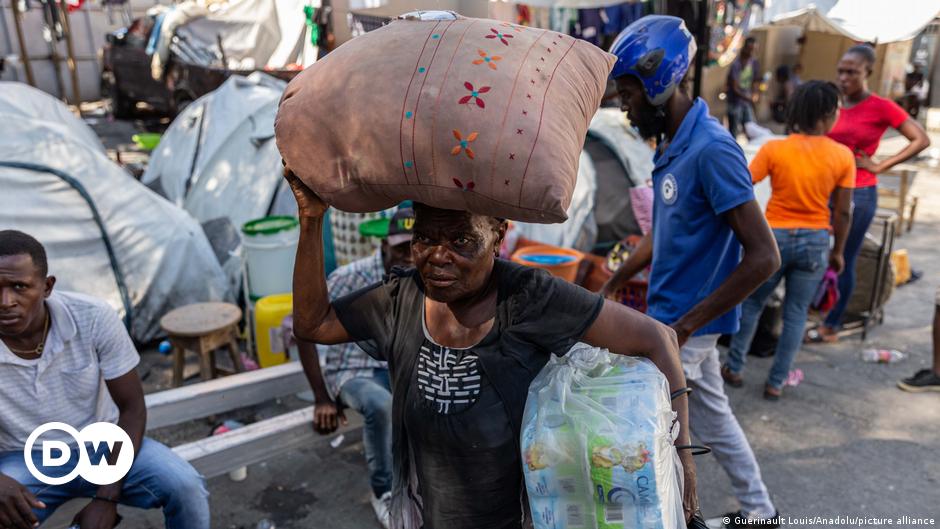US Secretary of State Antony Blinken arrived in Jamaica on Monday for emergency talks also involving Canada, France, the UN and Caribbean countries seeking to solve the flare-up of violence in Haiti.
It was not clear whether Haitian Prime Minister Ariel Henry, locked out of his own country by the violence and last said to be in Puerto Rico, would attend the session. He’s facing increasing pressure to either resign or agree to a transitional council.
The meeting was organized by the members of the regional trade bloc known as Caricom, which for months had pressed for a transitional government in Haiti as protests called for Henry’s resignation.
“The international community must work together with Haitians towards a peaceful political transition,” US Assistant Secretary for Western Hemisphere Affairs Brian Nichols said online ahead of the meeting, which he was set to attend.
Caricom warns Haitian stakeholders ‘are not where they need to be’
The Carribean Community (or Caricom) summoned its leaders as well as other international actors for the meeting in Kingston, Jamaica’s capital.
The State Department, which sent its top diplomat Blinken, said he would discuss a proposal “developed in partnership with Caricom and Haitian stakeholders to expedite a political transition in Haiti.”
Guyanese President Mohamed Irfaan Ali, the current Caricom chair, said talks to restore “stability and normalcy” to Haiti were ongoing but warned that some Haitian groups “are not where they need to be.”
“Time is not on their side in agreeing to the way forward,” Ali warned, describing the reports out of Haiti as “dire.”
European, US, German embassy staff airlifted out, Security Council urges calm
The EU said on Monday that its embassy staff in Port-au-Prince had relocated to the Domincan Republic, with Germany’s Foreign Ministry and the US taking announcing similar steps on Sunday.
The UN Security Council issued a statement calling on Haiti’s gangs to “immediately cease their destabilizing actions,” including sexual violence and the recruitment of children.
It said it expected that a multinational force would deploy as soon as possible to help end the violence. It urged the international community to support the Haitian police by backing the force’s deployment.
No elections since 2016, protests for months, street battles for over a week
The International Organization for Migration has warned that some 362,000 Haitians have been displaced from their homes amid the latest fighting.
The issue boiled over early this month, after months of protests calling for elections, and as Prime Minister Henry said the security situation in the country — long plagued by influential criminal gangs who control much of the capital — did not allow for this.
As Henry left on a trip to Kenya, seeking to shore up faltering support for an international policing mission that nobody volunteered to lead for months, an influential gang leader held a press confernece and said he was trying to oust the government.
The remaining government officials declared a state of emergency and curfew, which they extended last week, but security forces are struggling to control the city in pitched battles with gangs and other groups.
Gunmen have burned police stations and also raided two of the country’s biggest prisons, releasing thousands of inmates.
Henry has not made any public comments since the attacks began and his position was always a difficult one in a country that has held no elections since 2016.
Just days after Henry was announced as the next prime minister by former Haitian President Jovenel Moise in the summer of 2021, Moise was assassinated, propelling Henry into a more important and influential role that he has held since.
msh/wmr (AFP, AP)
The DW News WhatsApp channel is live! Join us now for unbiased news that matters.


